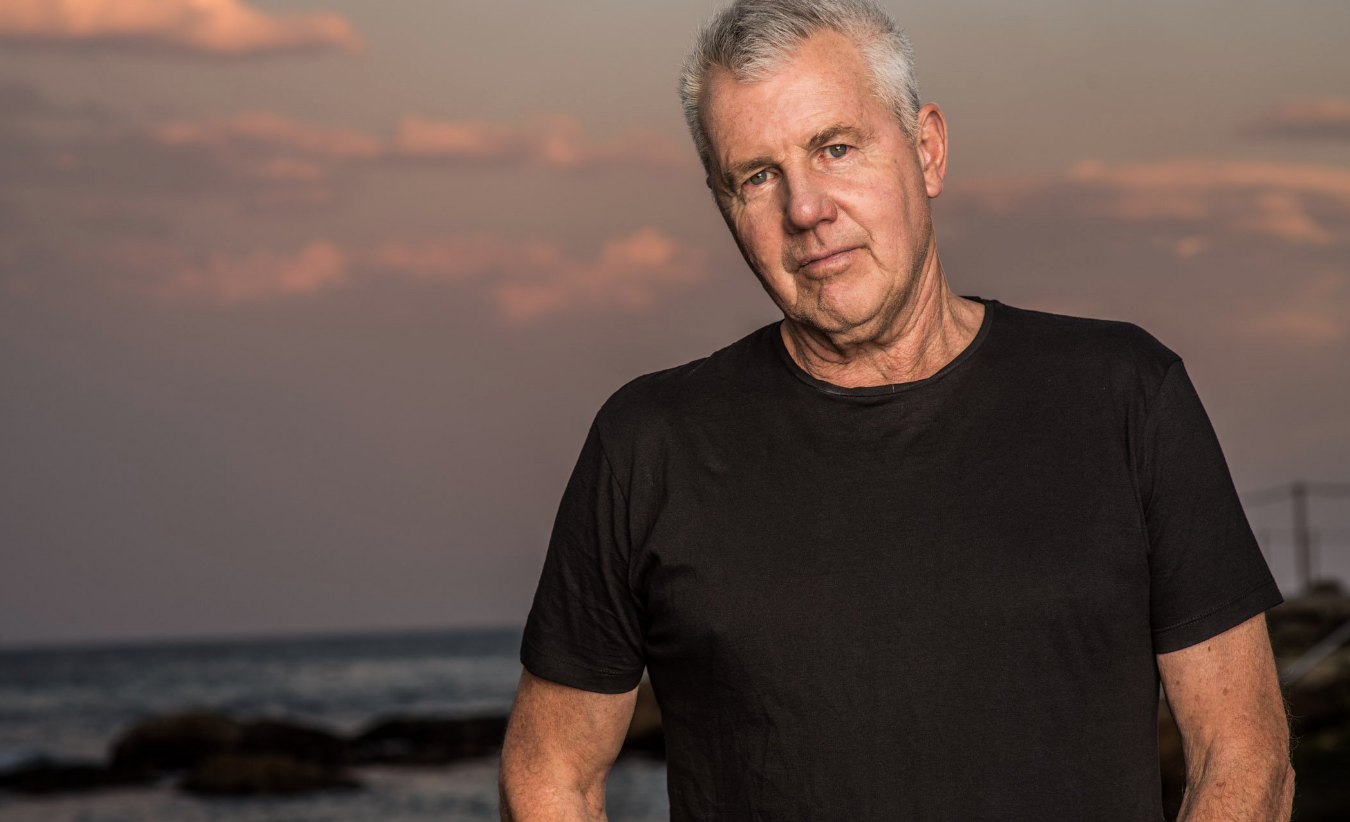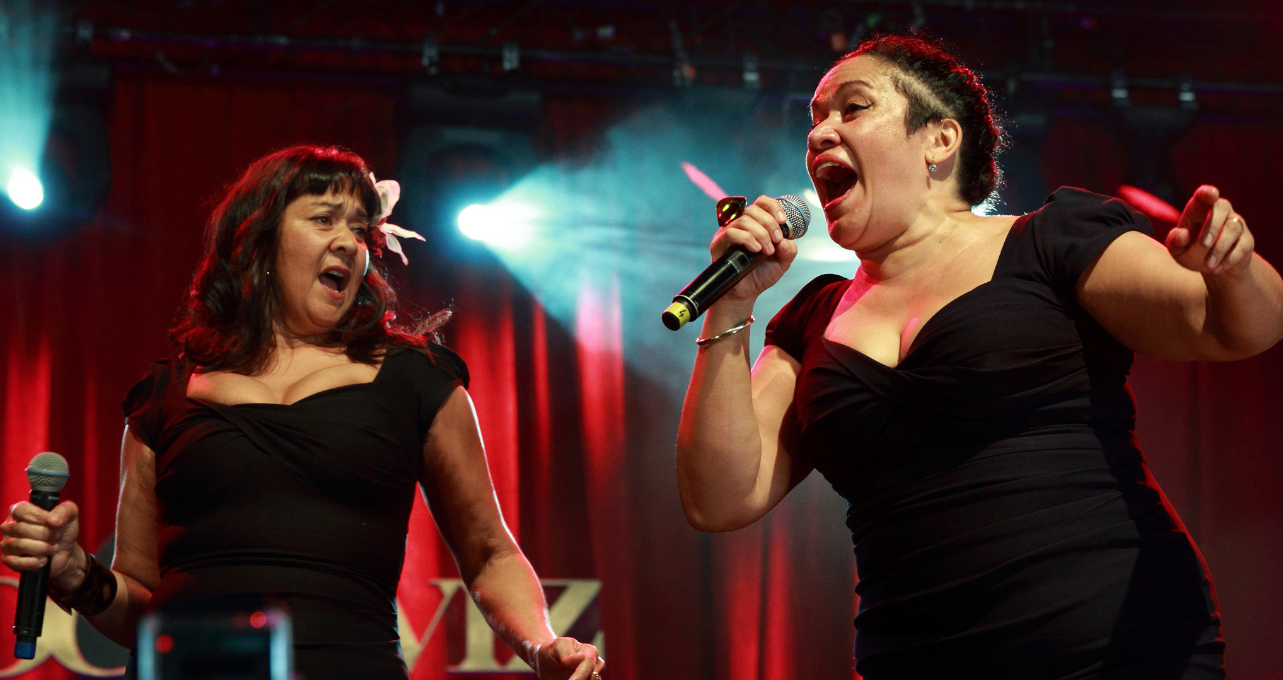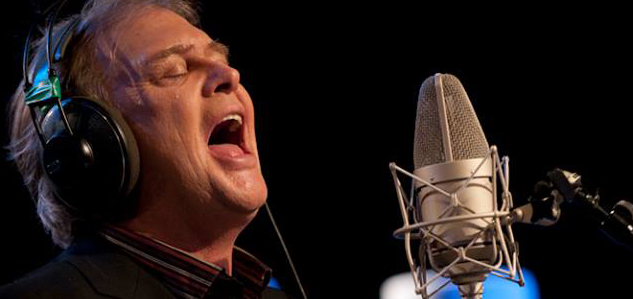Lights, Camera, Back Catalogue: Why record labels need a flood of Australian music biopics [op-ed]
![Lights, Camera, Back Catalogue: Why record labels need a flood of Australian music biopics [op-ed]](https://images-r2.thebrag.com/tmn/uploads/Rocketman.png)
The music biopic is a tricky thing to get right. For every transcendent Rami Malek performance, you get a dozen Penn Badgleys verbosely emoting as Jeff Buckley.
Casting the main role is step one, as many actors lack the impossible-to-bottle charisma that separates a rock star from Greg who sings in your friend’s punk band. You need to find actors that look close enough to the musos for it to seem plausible, without hiring a mere doppelganger. Behold the Jennie Garth lookalike in the 90210 Lifetime movie for an example of the latter. But casting isn’t the only consideration.
Having the rights to the actual music is the linchpin, as obvious as that sounds. ‘All Is By My Side’, the 2013 Jimi Hendrix biopic starring Andre 3000, didn’t have the rights to any of Hendrix’s actual music, despite the fact the Hendrix estate has happily slapped their official licence on dozens of posthumous albums featuring every bit of aimless guitar noodling Jimi recorded during his short life. Regardless, the producers forged ahead under the mistaken belief that Hendrix fans wouldn’t mind not hearing any actual Hendrix music in a film about his life. They were wrong; the film only made back 20% of its production costs, and Andre 3000 went back to not releasing Outkast albums.
Risky musical choices can be rewarded, however. The idea of Val Kilmer singing all the songs himself in Oliver Stone’s The Doors film seems like a terrible one, until you clock his pitch-perfect recreation of Morrison’s soulful baritone and devil howl and realise he is, in fact, the lizard king. It also helps that he gets the Ed Sullivan show stance right, and looks good in the leather pants.
Getting the music right helps for more than the obvious filmic reasons – if you have the record labels on board, they will see the film as the promotional opportunity it is, and begin pushing the artist’s catalogue. Such circular promotion helps both the film and the records sell. All boats rise in a high tide.
Bohemian Rhapsody and Rocketman are leading the current charge in the musical biopic landrush, both of which were directed by Spike from Press Gang, or Dexter Fletcher as the Directors Guild insists upon calling him. The former opts for original music, the latter sees star Taron Egerton sing Elton’s parts. Both are fine choices. In either case, official involvement from the copyright holders and major players was vital for the success of the film and the bump in record sales that results; when everyone is on board, everyone wins. Earlier this month, I wrote about how Bohemian Rhapsody’s massive success saw the titular track’s streaming numbers go through the roof, passing a cool 1.6 billion listens. (To put it in scientific terms, this means the name ‘Gallileo’ was streamed eight billion times.) The song re-entered the Aussie charts in mid-November, and sat on the ARIA Top 50 for 16 weeks – all due to the film.
This symbiosis has been seen locally for the past few years. We prefer the two-part TV mini-series here, though, as Australian cinemas are only used to screen films about superheroes who team up to fight rising popcorn prices.
In 2014, the two-part miniseries Never Tear Us Apart renewed the reputation of INXS, after a few blatant cash-ins had the band’s stocks plummeting like it was 1929. Midway through the 2000s, the band awoke from a collective fugue state to find themselves panelling a TV talent show to audition a new lead singer. J.D. Fortune, who was living under a bridge at the time, scored the frontman job, singing lead vocals on the much-maligned Switch album. By 2009, J.D’s fortunes had slightly improved – he was now living out of his car, after being fired by the band and sinking all the money he earned into a largely-ignored solo album. On 2010’s Original Sin album, INXS re-recorded a bunch of their classic songs with various lead singers, such as Rob Thomas and Tricky. Andrew Farriss and Kirk Pengilly even took a shot at lead vocals on ‘Don’t Change’, negating the song’s main message. Short of airbrushing Hutchence out of all their previous video clips, it’s hard to see what more the band could have done to damage their own legacy.
Then, a Network Seven mini-series turned it all around. Never Tear Us Apart aired over two nights in February 2014, and was a ratings winner. The week after it aired, the band’s best of collection jumped to #1, their 1987 album Kick hit #2, Live At Wembley Stadium 1991 was #17, and three further albums jumped back into the Top 40. In addition, ‘Never Tear Us Apart’ leapt to #11 on the singles chart, and ‘Need You Tonight’ hit #28. It was the best charts week in the band’s history. The series was executively produced by manager Chris Murphy and guitarist Tim Farriss, and as such, it was the only series to feature their officially-licenced music. The film’s content was also tightly controlled with the term ‘autoerotic asphyxiation’ not rating a mention.
In 2016, Seven repeated the format for Molly, a two-part mini-series about Molly Meldrum’s storied career. The first half was the highest-rating non-sport program that year, Samuel Johnson scored the Gold Logie for his portrayal of Meldrum, and a three-disc, 60-song soundtrack hit #1 on the ARIA charts, and was the fourth-highest selling album of 2016. Another success.
They attempted a third go around last May with Olivia Newton-John: Hopelessly Devoted To You, recruiting Delta Goodrem to play Olivia. Good choice, right? However, whereas the previous two mini-series were created with the involvement of the key players, Olivia was not consulted on this film, and it was created without her “consent, participation or knowledge.”
This caused problems. Newton-John only agreed to appear on two songs on the subsequent soundtrack album after proceeds were promised to her cancer and wellness centre. “I was very anxious. I didn’t have control – they’d do it without my permission anyway,” she reasoned.
The program struggled in the ratings: the second part attracted a quarter of a million less viewers than the first, suggesting viewers weren’t compelled to keep watching. It was the eighth-highest rating show of the night – managing only 20,000 more viewers than Agatha Christie’s Ordeal By Innocence. Unlike the aforementioned series, the tie-in soundtrack featured covers of Olivia’s songs as performed by Delta, not the originals. Nevertheless, it entered the ARIA charts at #4.
Jimmy Barnes’ Working Class Boy – not a biopic but a documentary based on Barnes’ early violent life – has recently taken up the mantle for this type of TV production. Barnesy shot down the idea of a biopic, saying “everyone wanted to do a TV miniseries like Molly or Olivia Newton-John and I told them it is just not happening,” explaining how the sensitive nature of the subject matter would be cheapened. “I didn’t want to glamorise it or play down the gravity of the violence of abuse.” Besides, who on earth could play Barnesy in a way that’d do him justice?
I predict that, given the overseas success, and our own local track record, the market for such biopics is about to go through the roof here, especially considering the revenue it can provide for artists and labels with deep catalogues that can be repackaged, remastered, reissued, and revitalised.
With this in mind, I offer up three Aussie artists whose stories are rife for the biopic treatment. I have given each project a working title, and in the first instance, I am also making myself available to play any of the non-Braithwaite members of Sherbet.
HOWZAT – THE DARYL BRAITHWAITE STORY

‘The Horses’ has become one of those meme songs where people aren’t sure if they are into it ironically or not, but regardless of the reason, Daryl Braithwaite is back selling out arena tours at age 70, so I’m very happy with the results. What better time to produce a biopic about his life?
His story is amazing. Braithwaite grew up in working-class Melbourne with his parents and his twin brother. That’s right, straight off the bat, you have a twin storyline. He is briefly in the same school class as Olivia Newton-John; the two 12-year-olds even have a brief pre-teen romance (artistic licence would require a scene in which the two lock eyes across the quad as a sparse instrumental piano version of ‘Horses’ plays poignantly). As a teenager, his family moves to Coogee, he drops out of school in Year 10 and gets an apprenticeship, which he soon ditches to pursue music. He joins Sherbet, they become massive ’70s teen idols. Screaming girls snake around the block outside their shows, they are unthreatening to parents because they have pretty hair and prettier harmonies, but are still bad-arses, as evidenced by the time they smoked cigarettes while guest-hosting Countdown (they can reuse the set from the Molly mini-series to save money). They had 20 hit singles in Australia, and even scored a UK #5 with ‘Howzat’, still the only pop song written around a cricket metaphor, but by the late ‘80s, the band had split and Braithwaite was dead broke, spending a few months on the dole before getting a council job paving footpaths for less than $200 a week.
A down-and-out Daryl begins working on his solo career, and has a number of huge hits, becoming one of the biggest local sellers of the early ’90s: ‘The Horses’ goes to #1, Edge is the highest-selling album ever for Sony Music Australia, Rise is the best-selling album in Australia in 1991, selling over 300,000 copies. Then his ex-manager sues him, he loses all his royalties, is dropped by his label in 1994, and is working as a road labourer. He doesn’t make another record for 12 years.
Skip forward to his re-signing to Sony in 2013, the ‘Horses’ meme reigniting his career, and his induction into the ARIA Hall Of Fame. The final scene should stray from strict biography and see him reunite with the girl from ‘The Horses’ video. The pair fly off on a horse, much like the final scene in Grease.
One final production note: Mark Trevorrow, aka Bob Downe, should play him in the later decade or two of his life. He’s a dead ringer.
WE’VE STARTED A FIRE: VIKA AND LINDA

Two sisters, Vika and Linda Bull, are taught to sing in harmony by their Tongan mother, who is raising them with close ties to the Melbourne Tongan community: church services, Tongan feasts, and spirited sing-alongs. They grow up with a deep love of music, and Vika, with aspirations to be a singer, gets a job at a local recording studio. One day, rising star Rebecca Barnard, who is recording in the studio, finds one of her backing vocalists has lost her voice. Oh no! What to do? Vika steps in and wows everyone. This is the first time she has put her voice on record, and obviously a pivotal scene in the film.
Both sisters soon join Joe Camilleri’s band The Black Sorrows, who had released four unsuccessful albums up to that point, due to his insistence on playing sax. The Bull sisters’ vocals become a key element to the band’s sound, and their next album goes top ten, scoring a hit single with ‘Chained To The Wheel’. The follow-up album is even better, peaking at #3 and spawning the Bull-fronted hit ‘Never Let You Go’, and the Dylan-esque ‘Harley and Rose’. The sisters become highly in demand and sing on albums by Hunters and Collectors, John Farnham, Deborah Conway, and Archie Roach. While recording vocals for the latter album, they meet and impress the record’s producer – one Paul Kelly.
He then produces an album for them, which is a sales success. They tour with Billy Joel, record with Iggy Pop and then become a vital component of Paul Kelly’s band, with dozens of his recordings featuring their vocals. Their music lives on forever in the jukebox in Summer Bay Diner, where their songs are still spun approximately 800 times a year.
THE AGE OF REASON: THE FARNHAM STORY

This one is my favourite. The story of John Farnham is as etched into the Australian landscape as the Hume Highway, and many TV specials over the years have compressed his story into a series of key milestones: Sadie The Cleaning Lady; Whispering Jack and You’re The Voice; Chain Reaction; The Main Event; a retirement tour that was never a retirement tour, but in fact, just named after an album called ‘The Last Time’.
But these always miss the true highlights that make Farnsey such a national treasure. What about the time he appeared on Home and Away in 1988 to visit a bed-bound Kate Ritchie, after he felt sorry for her character Sally, who won tickets to the gig through a radio contest, but couldn’t go due to illness? Or his long-standing residency on the Red Faces panel? The Human Nature collaboration always gets short shrift, as does the part in ‘When Something Is Wrong With My Baby’ when he and Barnesy exchange wails.
Then there is his late-’60s, early ’70s psychedelic period. Johnny was tripping the light fantastic back in his late teens, with psychotropic classics such as ‘Friday Kind Of Monday’, ‘Looking Through A Tear’, ‘Visions Of Sugarplums’, ‘Mirror Of My Mind’ and ‘Rose Coloured Glasses’. Imagine a mini-series where the first half focuses on a young swingin’ Farnham tears through ’60s Australia cutting psychedelic classics while performing to adoring screaming teens. It’d be a trip.
This early period is always skipped over or dismissed as his non-serious ‘teen pop’ phase when people talk about his career, but Farnham basically has the equivalent of a Nugget boxset just sitting in his catalogue, waiting for a label to wrap it all together, dose the packaging with lysergic acid, and send it out into the world.
Then finally, we will live in the age of reason he was trying to tell us about.

































